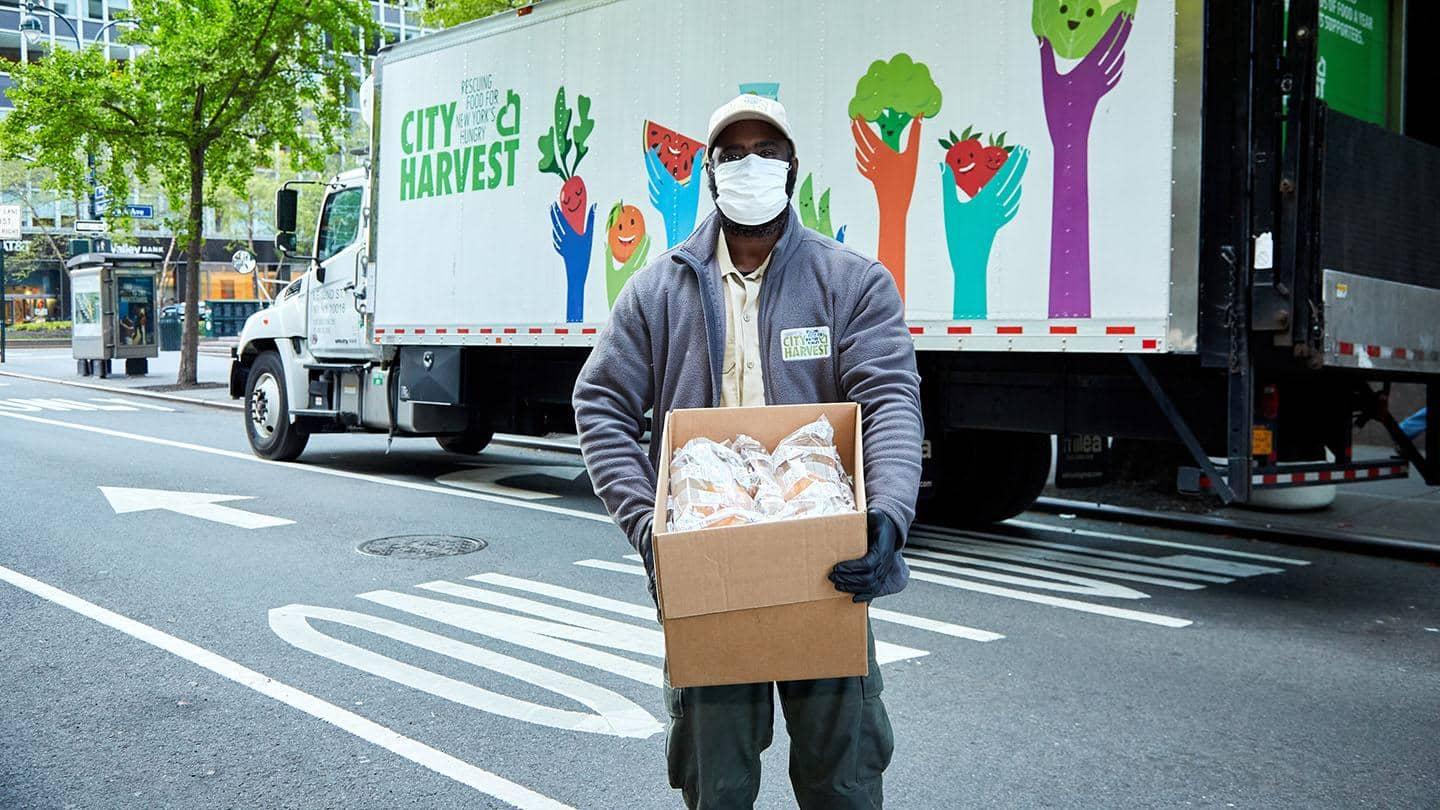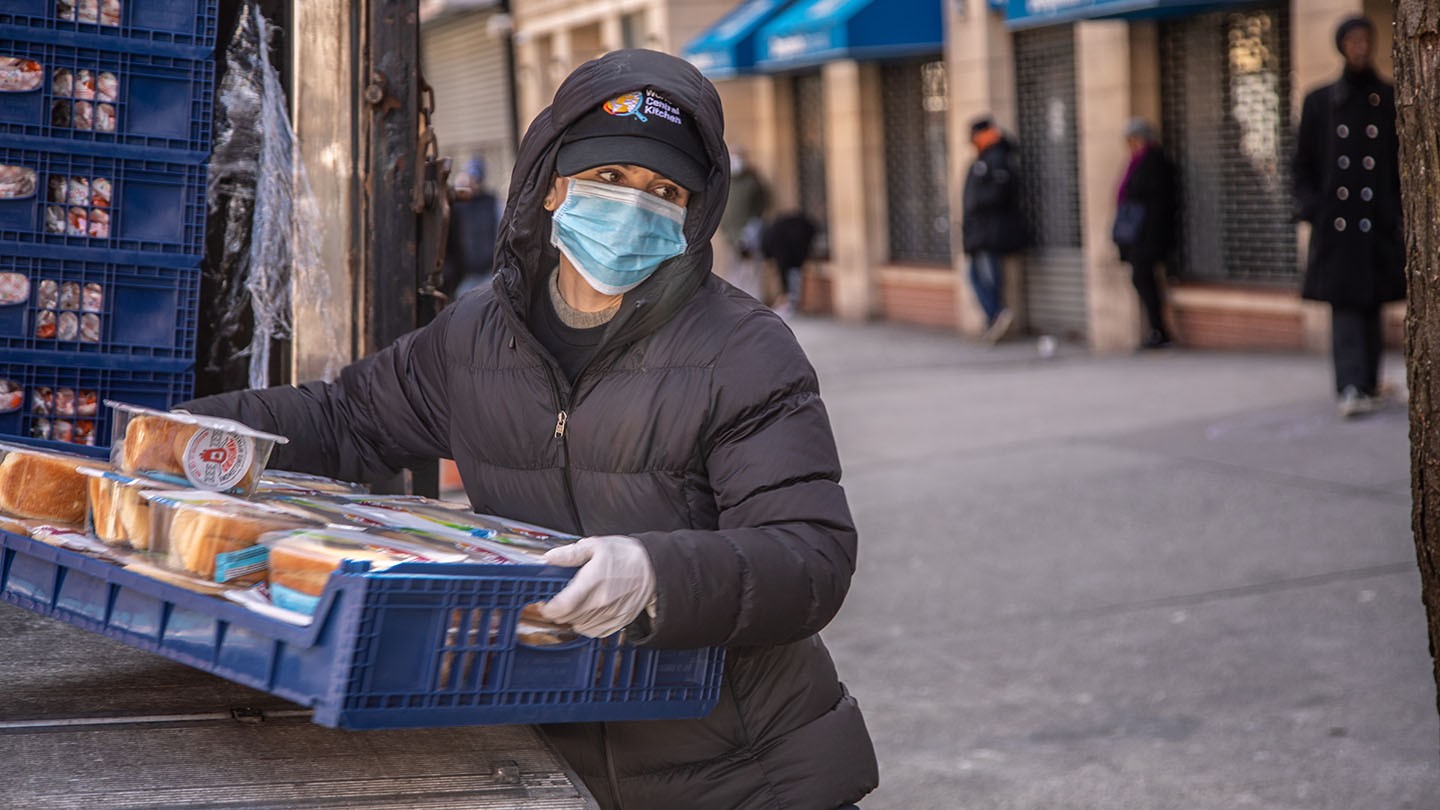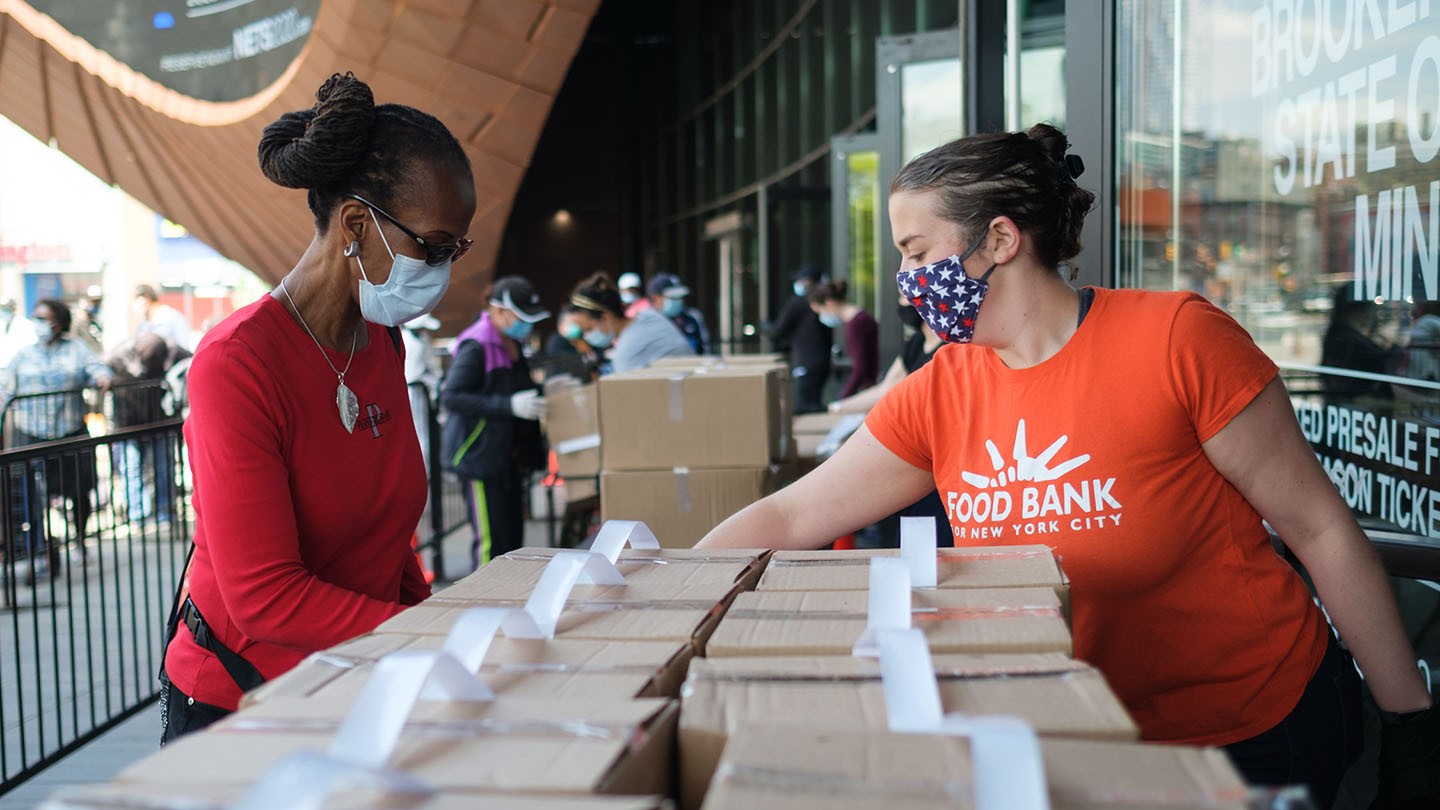
Robin Hood: “Coronavirus shines a bright light on the challenges in our systems”
At the start of this year, around 1.7 million New Yorkers were living in poverty – and for many, the pandemic has only worsened their situation. Lindsey Sheskey and Emary Aronson from Robin Hood tell us how the charitable foundation is tackling poverty in the city by supporting innovative non-profits – and why they’ve set up a dedicated relief fund to counter the effects of COVID-19, with Barclays’ support.
“When there's a crisis, it is vulnerable people who are most affected. We've certainly seen that with coronavirus.”
Lindsey Sheskey, Managing Director of Development at Robin Hood, highlights the role of the charitable foundation in helping those New Yorkers whose living situations have gone from bad to worse during the pandemic.
Robin Hood partners with more than 250 non-profits to invest millions in essential work to help people with housing, food, education, legal services and work across the city’s five boroughs. Its data-driven approach and commitment to combatting the many facets of poverty have helped ensure that every grant helps to change lives.
Having forged its expertise in relief efforts by supporting the victims of Superstorm Sandy and 9/11, Robin Hood has launched a COVID-19 Relief Fund, which has given more than 700 grants to around 500 organisations – representing an allocation of over $50m.
Barclays has supported the relief fund with a donation from its £100m COVID-19 Community Aid Package, designed to help those hardest hit by the social and economic crisis caused by the pandemic. The bank has also provided colleague volunteers and coaches to help Robin Hood to respond quickly to the crisis.
“The coronavirus crisis shines a bright light on the challenges in our systems and shows that they are broken,” says Emary Aronson, Chief Program Officer. “There's no other explanation for why people of colour are dying at a higher rate than white people are. It's because there are challenges in our healthcare, in our housing, in education, and in every system that we have.”

Robin Hood is tackling poverty in New York by partnering with more than 250 innovative non-profits.
When there's a crisis, it is vulnerable people who are most affected. We've certainly seen that with coronavirus
Managing Director, Development, Robin Hood

Barclays has provided financial support and colleague volunteers and coaches to help Robin Hood to respond quickly to the crisis.
From disaster relief to COVID-19 support
Robin Hood’s beneficiaries include the Center for Employment Opportunities, which links people recently released from prison with paid employment; and the Association to Benefit Children, which has stepped up its efforts to provide necessities to vulnerable children during the pandemic.
The Robin Hood team is also passionate about innovative ways of combatting poverty. The non-profit recently worked with Invisible Hands, which links elderly and vulnerable people with volunteers who can help deliver groceries and prescriptions. Starting from a single Facebook post offering help from college graduates, more than 10,000 volunteers have now delivered over $1m of essential goods through the non-profit.
Indeed, Robin Hood has its own dedicated incubator and accelerator, Blue Ridge Labs, which helps socially-driven tech companies to build solutions that address inequality. The labs are now working to resolve challenges during the crisis – whether that means Rescuing Leftover Cuisine, which donates food to those in shelters, or virtual tutoring programmes to improve access to education. “They have seen huge increases in demand,” Aronson says.
How Barclays is helping Robin Hood fight poverty in New York
While Barclays’ COVID-19 Community Aid Package has provided much needed financial aid, the bank has also helped back Robin Hood’s employability programmes by colleagues volunteering their time and skills.
“We will often call them with our requests – like asking for a group of young tech-bankers to help us with some coaching for our social entrepreneurs,” says Sheskey. “Barclays’ community investment and philanthropy are so advanced that we use it as a bellwether for what’s to come six months down the road – for example, the bank’s early focus on virtual volunteering showed us that was a direction we needed to go in.”
“We will often call them with our requests – like asking for a group of young tech-bankers to help us with some coaching for our social entrepreneurs,” says Sheskey. “Barclays’ community investment and philanthropy are so advanced that we use it as a bellwether for what’s to come six months down the road – for example, the bank’s early focus on virtual volunteering showed us that was a direction we needed to go in.”
Robin Hood has been an important partner for Barclays’ COVID-19 response in the US. The organisation’s virtual ‘Rise Up New York!’ telethon in May, which helped to raised $115m for COVID-19 relief efforts, and even ended with a performance from Billy Joel broadcast on the screens of Barclays’ New York offices.
And support from organisations like Barclays, coupled with the grassroots contributions of the many people supporting their New York neighbours, will continue to be crucial in addressing the repercussions of the pandemic.
“The 9/11 fund started after the crisis. The Superstorm Sandy fund started after the rain had stopped,” says Aronson. “But we're still moving through this crisis and so even as we re-open, we know that there's still a long way ahead.”